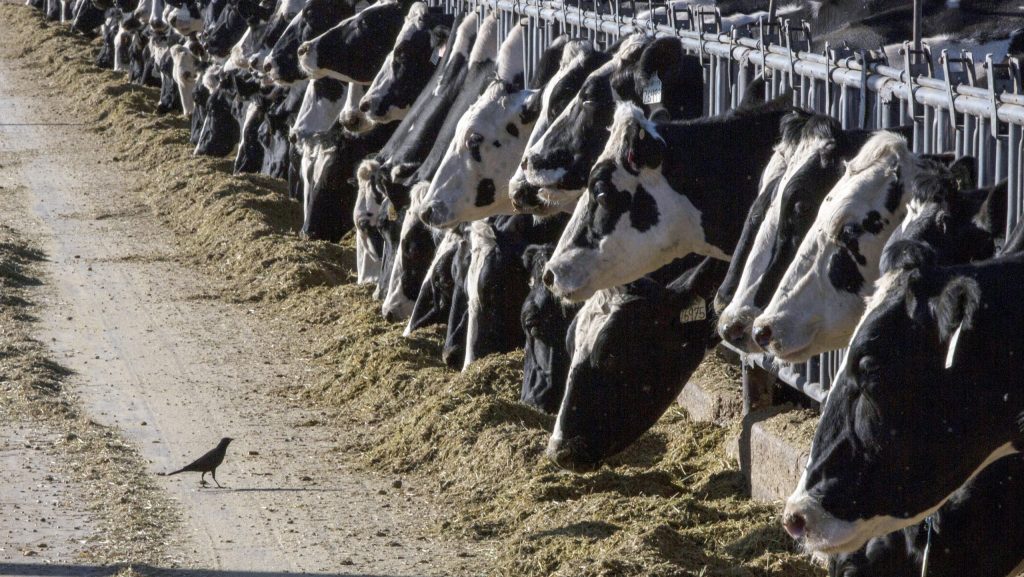Bird flu confirmed in Michigan cattle, poultry
At least one person who had contact with infected cows in Texas has been diagnosed with bird flu, health officials said Monday.

FILE - Dairy cattle feed at a farm on March 31, 2017, near Vado, N.M. The U.S. Department of Agriculture said Monday, March 25, 2024, that milk from dairy cows in Texas and Kansas has tested positive for bird flu.
Avian influenza, also known as bird flu, has been detected in a mid-Michigan dairy herd.
Nora Wineland, Michigan’s state veterinarian, says the outbreak in Montcalm County originated in cows that were transported from Texas, where several outbreaks of the virus have been popping up in cattle populations across the Lone Star State. This marks the first time the virus has appeared in Michigan cattle.
The Michigan Department of Agriculture & Rural Development (MDARD) also confirmed an outbreak at a commercial poultry facility from Ionia County on Tuesday.
According to health officials in Texas, at least one person who had contact with infected cows in the state has been diagnosed with bird flu with minimal symptoms. Cases of bird flu in cattle have also appeared in Idaho, New Mexico and Kansas.
Symptoms of the virus include a drop in milk production, reduced food consumption and fevers, but Wineland says research on bird flu in cattle is fairly uncharted territory.
“We’re still looking into understanding that better so we can give good advice to folks of how to protect their herds from this happening.”
USDA officials said in a written statement that tests results from the outbreak in Michigan show that transmission of the virus between cattle cannot be ruled out.
Phil Durst is a cattle expert with Michigan State University Extension. He says consumers should not be concerned.
“If we have a sick herd, we’re gonna separate sick animals out of that herd so that they’re not gonna pass it along to other animals,” he said. “And then milk is pasteurized and the pasteurization of that milk would kill any pathogens that would be in the milk.”
Durst says cattle producers should isolate animals suspected of carrying the disease for 14 to 21 days and report it to MDARD.
Tests from the outbreak show the risk of the virus spreading to humans and other mammals remains low, according to state and federal officials.
Trusted, accurate, up-to-date.
WDET strives to make our journalism accessible to everyone. As a public media institution, we maintain our journalistic integrity through independent support from readers like you. If you value WDET as your source of news, music and conversation, please make a gift today.
